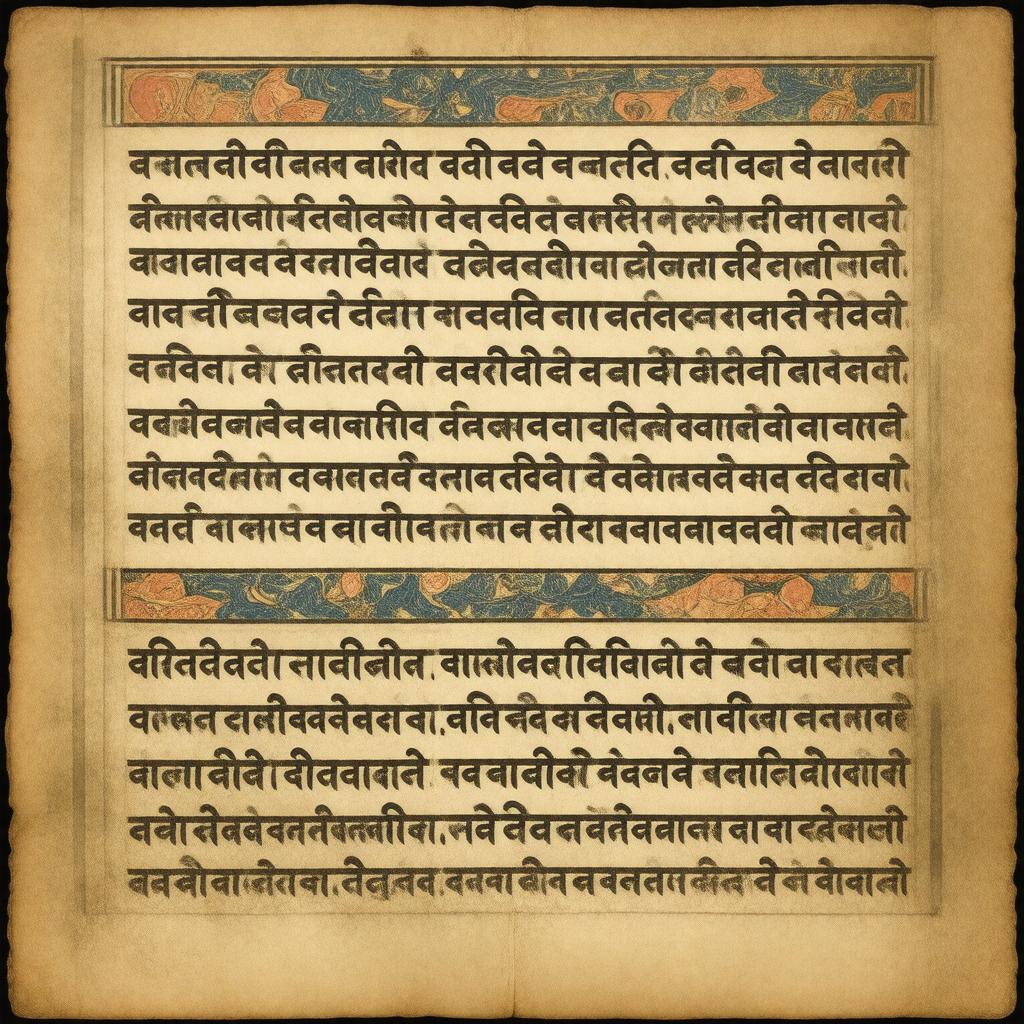Prompt
"An ancient Indian manuscript page with intricate Sanskrit calligraphy and illustrations, depicting the Isha Upanishad, a revered Hindu scripture and one of the Principal Upanishads, with a serene and mystical atmosphere, conveying the themes of oneness of Atman and Brahman, spirituality, renunciation, and self-realization."

